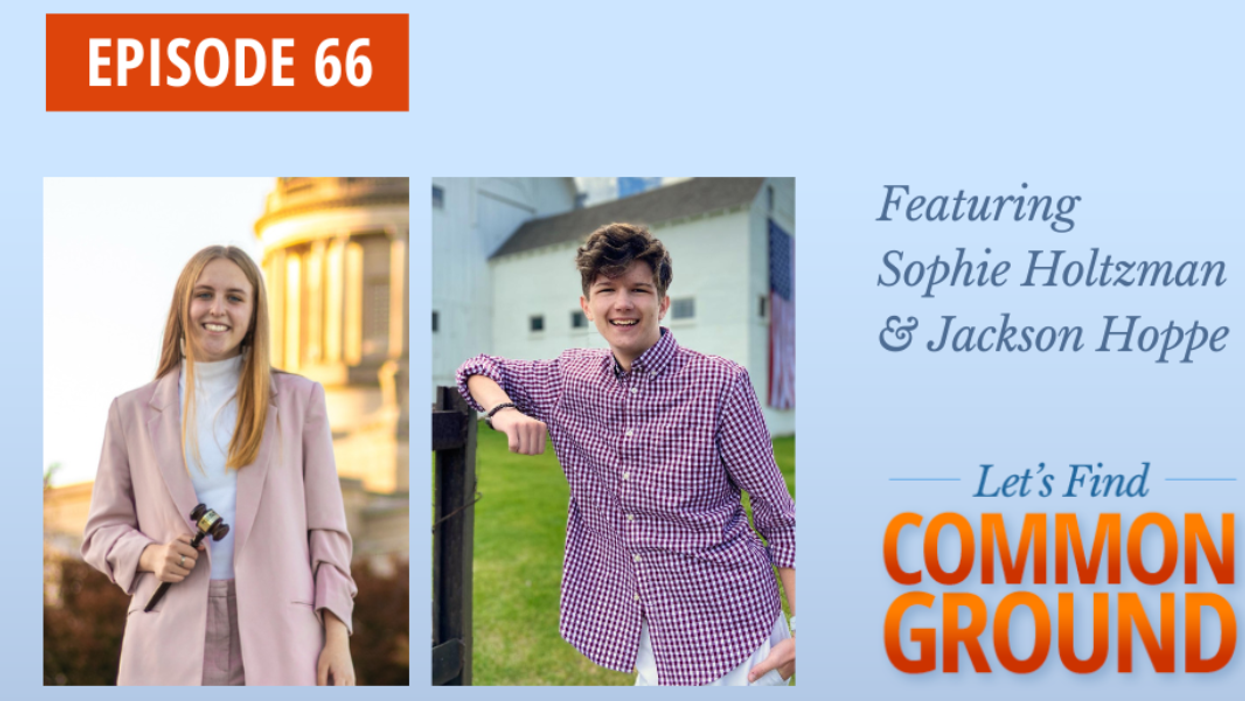This episode of “Let’s Find Common Ground” features two guests who are part of the school shooting generation. Each grew up with active shooter drills and worries that their school could be next, concepts that were unthinkable when most of today’s politicians were in the classroom.
George Washington University sophomores Sophie Holtzman and Jackson Hoppe are joint vice presidents of their college’s chapter of BridgeUSA, an organization that creates spaces for students to have open discussion on political issues.
Sophie, a liberal, and Jackson, a conservative, share stories of being raised in the South, their experiences with guns, and how listening to others’ opinions on the topic – even when they disagree – is a vital first step to finding common ground.




















